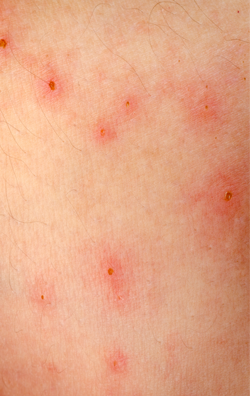
Atherosclerosis is the hardening of the arteries, chiefly of the inner lining (tunica intima) as a result of fat deposits in the inner lining which causes narrowing of the arteries. This in future interferes with the normal blood circulation. An elevated plasma lipid level is found to be correlated with the production of atherosclerosis.
Atherosclerosis stands to be the main reason generating cardiovascular diseases for example, heart attacks, strokes and peripheral vascular disease.This disease disrupts the flow of blood through the arteries.
As an outcome of atherosclerosis, there is a formation of plaque inside the arteries. Plaque is formed of fatty substances, cellular waste products, calcium and a material which helps in coagulation called as fibrin.
The Low Density Lipoprotein(LDL) cholesterol gets accumulated in the artery walls which results in atherosclerosis.
Initially there are no particular symptoms which shows the presence of this disease but as it gets advanced the narrowing of the arterial walls become more severe. Several factors seem to influence the plasma lipid level.
Some of these factors causing atherosclerosis are:
1.Overweight or obesity: Extra kilos or pounds than the normal expected for a certain age, would be considered as overweight and if not controlled on time would give rise to many health issues including atherosclerosis.
2.Unhealthy blood cholesterol level and blood pressure: High LDL and low HDL levels result in atherosclerosis. High blood pressure is another such contributing factor.
3.Smoking: Smoking hampers the easy flow of oxygen that has to reach the body tissues. Smoking also raises the cholesterol and blood pressure.
4.Foods that are high in components like trans fats, cholesterol, sodium etc. can increase the risk levels of acquiring atherosclerosis.
5.Old age and other genetic factors also stands equally responsible for the generation of this disease.
Diet Therapy:
Dietary counselling is the first step in the management of patients with an abnormally high plasma cholesterol level.
Calories: Total calories should be restricted to reduce the weight to the expected normal for the height, age and sex.
Fat: It is not desirable to restrict all forms of fat. As restrictions result in mental depressions. The total intake of fat should be kept below 28% of the total calories. Fats should be consumed partly as unsaturated vegetable oil. Since, they decrease the blood cholesterol levels. Saturated fats such as butter, ghee, coconut oil etc., should be taken in moderation.
Carbohydrates: High CHO is found to be a factor in enhancing the body synthesis of lipids, the endogenous(inside) synthesis is controlled by reducing by reducing the daily intake to 125-150 gm per day as starches.
Protein: Normal allowance of 1 gm per kg of ideal body weight is recommended. Green vegetables, fruits, cereals, skimmed milk, lean meat and fish should be the main items of the diet. Three or four meals are preferable two hours before going to bed.
Regular exercise is most useful but physical strain should be avoided and kept under control.
The patient should be provided with a calorie restricted diet which is low in cholestrol but adequate in proteins.





